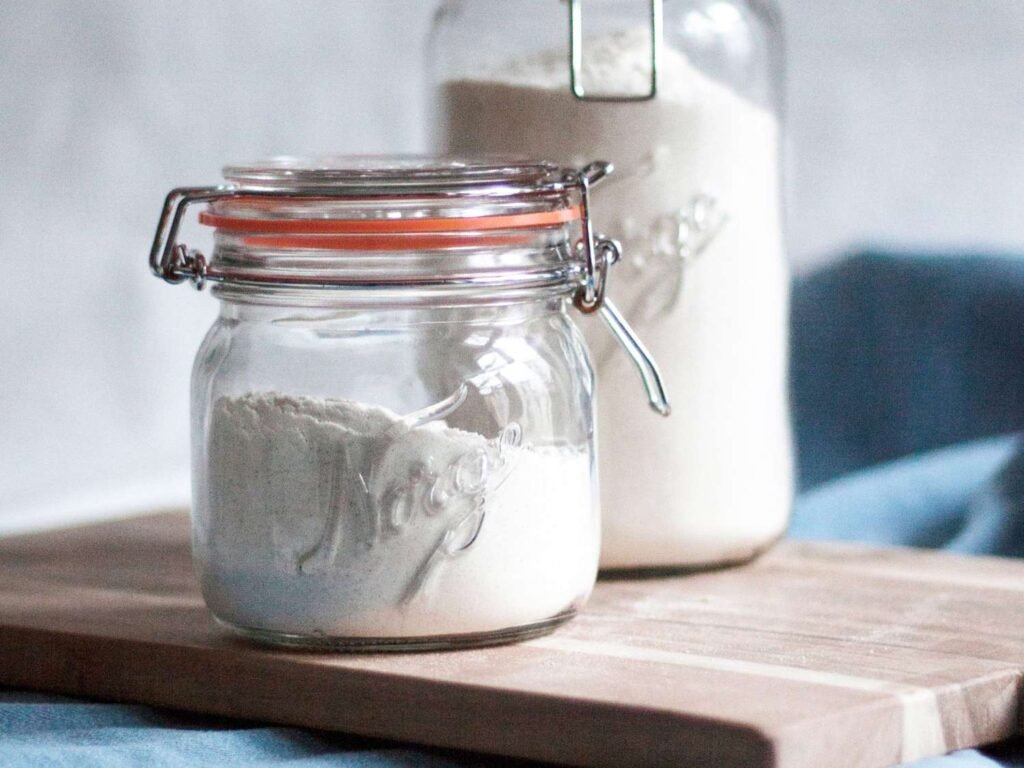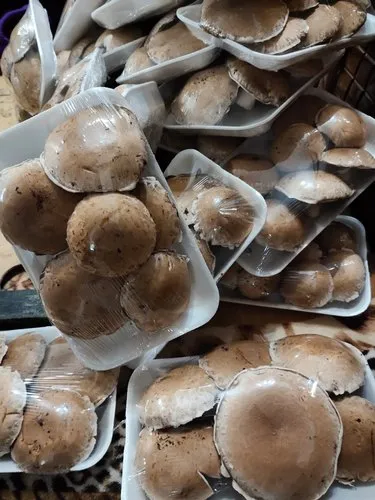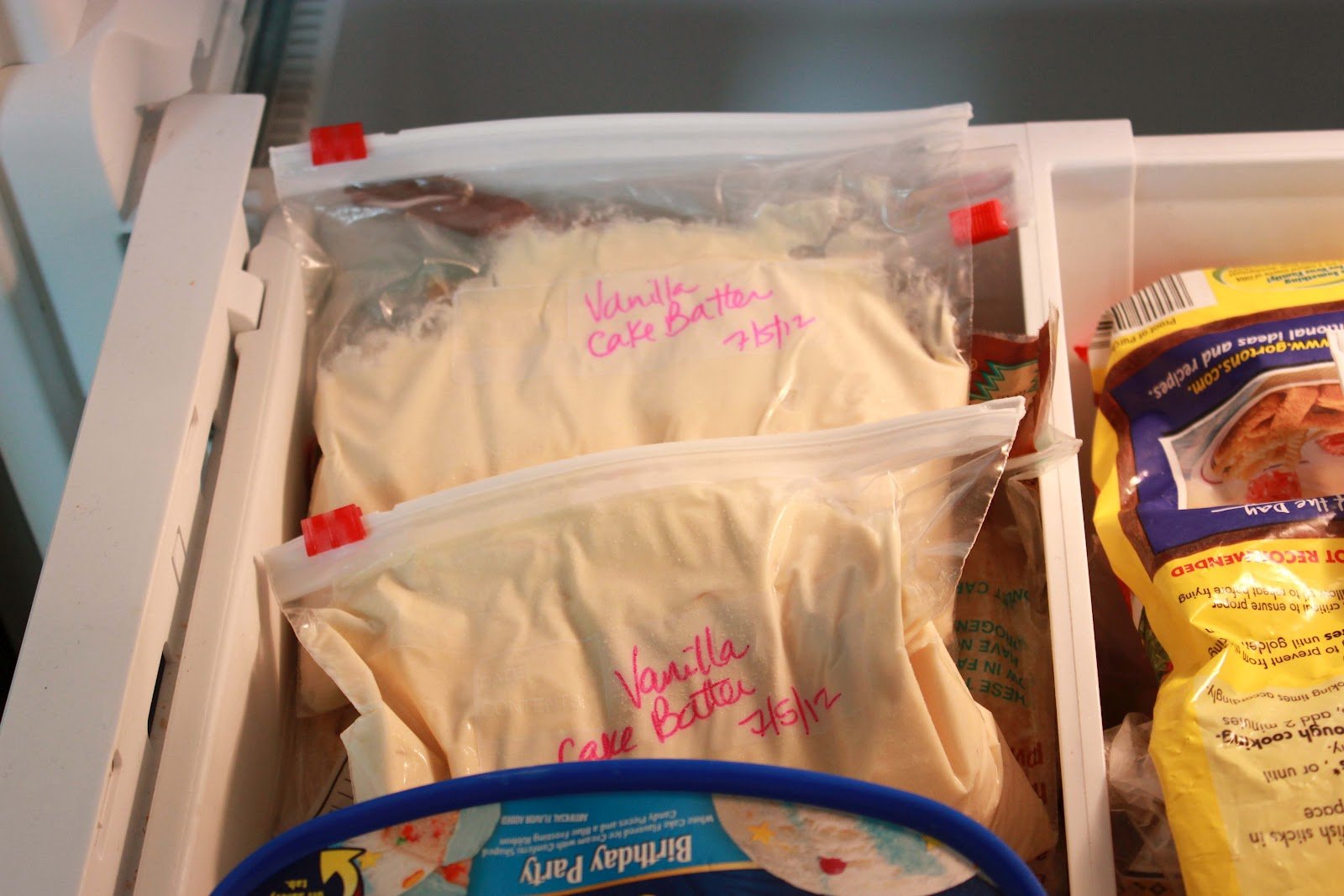Flour is a staple pantry item in many households. Flour is produced by grinding wheat, beans, seeds, and nuts into powder. You can use flour to make many dishes and bake food.
The nutritional benefits of flour depending on the food item it is made from. Flour is a good source of protein, fiber, and complex carbs to help you build your body.
Flour lasts for a long time before it gets spoiled. The expiration date on the package of flour is usually closer than you expected. This can limit the amount of flour you can use. Flour can lose its quality over time due to environmental factors and expiry dates.

Why is Flour Best to Freeze?
You can freeze flour to make sure you have a well-stocked pantry. Finding the right temperature for freezing flour is the key. Your flour will stay fresh for at least a year. Make sure your flour is stored in a dry and secure place. The freezer is the best place to store flour in most homes.
There is no one rule about how to store flour. Follow the instructions on the flour bag. Keep in mind, however, that flour can absorb a lot of moisture and expand when exposed to moisture. It’s best to keep flour in a dry, cool environment. Also, make sure you store your flour in an airtight container. Flour can expand when it is exposed to moisture. This can make it difficult to use your flour. Keep your flour in an airtight, dry, cool, and dark container.
Factors to Consider Before Freezing Flour
Flour should be kept in the freezer to kill bugs and organisms living in it, as well as to prevent contamination. However, this does not mean flour should be kept in the freezer. You should still check the quality of the flour before you use it.
It is recommended to store the flour in a large, rigid container. It will take up more space, but it will also save you plastic compared to individual ziplock bags. It will be simple to portion the flour from the freezer because it won’t freeze in a lumpy form. You can freeze more flour types than you need.
You must consider what type of flour it is to determine how long to keep it in storage and when to let it go. All-purpose flour and refined flours last for about two years. They will smell rancid if they are stale.
To keep track of its age, we recommend that you label your flour with the open date and expiration date. This will give you an indication of how long the flour has been used.
How do you freeze flour?
Check out below!
- Transfer flour from the original container into an airtight container. Use a plastic container or a sealable plastic bag to store the flour. For flour sensitive to moisture, use airtight containers.
No moisture in flour can freeze it and make it solid. Therefore, it is optional to freeze it in smaller quantities. You can freeze it in a bag or container to scoop out the desired amount whenever you need it.
- Make sure there is enough space inside the container. The flour will keep longer if there’s less air in the container. Plastic bags are better because you can eliminate excess air once you’ve removed some flour.
- You should label the container with the date. You can use flour for up to six months after it expires, but it is best to mark the date on the container.
- Avoid foods that have a strong odor. Although well-sealed containers will prevent the flour from absorbing odors, it’s essential to ensure that the product doesn’t lose any of its characteristics, including smell.
Notice: Frozen flour should never be kept in its original package, even if you have yet to open it. You will waste your flour if you use paper packaging.
Wrapping flour in plastic wrap is the best way to freeze it while keeping it in its original packaging.

Reasons To Freeze Flour
It is essential to freeze flour to prevent it from oxidizing or developing off-flavors. If flour is kept at too high temperatures, it can spoil and become spoiled. The freezing of flour keeps it fresh and stops it from getting as bad.
There are many reasons to freeze flour.
-
Keep It from Ruining
Frosting flour prevents pests and bugs from entering the flour. At a high temperature, flour can grow bacteria and mold, leading to insect infestation. The flour can become contaminated and unfit for consumption.
-
Freezing Protects It from Moisture
It is vital to freeze flour to keep it fresh and prevent spoilage. Cooling flour prevents mold growth and bacteria and prevents moisture evaporation.
Frozen flour also helps prevent the formation of clumps, making it more difficult to use and look ugly.
-
Freezing keeps it safe from mold growth.
The flour can taste bad due to mold and mildew, making it more difficult to rise in baking. You can prevent problems by freezing the flour.
How do you defrost frozen flour?
First, take your frozen flour out of the freezer before you start baking or cooking with it. To ensure that the flour is ready to be used when mixing it with other foods, take it out of your freezer at least an hour in advance.
Remove the frozen flour from the freezer. Scoop out the amount you need. Let it thaw at room temp for approximately 2-3 hours before using it.
You should not take the entire bag out of the freezer before you decide how much to scoop. Frequent freezing and thawing can quickly ruin flour’s quality.
How to Use Up Extra/Leftover Flour?
You can use extra flour in many ways. Here are five delicious ideas:
- Make some waffles or pancakes- This is an excellent way of using extra flour. Add milk, eggs, oil, and flour to the flour, and stir until well combined. Cook the waffles or pancakes according to your instructions.
- Thicken soups and sauces- You can use flour to thicken soups or sauces that are too thin. Add a small amount of flour to the liquid, and stir until well combined.
- Make homemade bread – This is a great way to use extra flour. Add the yeast, water, salt, and flour to the flour, and stir until well combined. Let the dough rise for approximately an hour in warm conditions before baking.
- Make your pasta- This is a great way to use extra flour. Mix the flour with some water and eggs until it is well combined. Roll out the dough and cut it into the desired shapes.
- Bake a batch of cookies- This is a great way of using extra flour. Mix the flour with butter, sugar, eggs, and vanilla extract until it combines well. Next, drop the dough in small spoonful onto baking sheets and bake for 10 minutes at 350°F to prepare batch of delicious cookies.

FAQ’s
How long is flour good for in the freezer?
It may also be more shelf-friendly to freeze or refrigerate it. All-purpose flour can last 6-8 months on the shelf but up to 2 years when frozen. To prevent mold, keep flour out of moisture and water.
Is freezing flour safe?
Freezing flour will kill any pests that might be in it while it’s sitting in your pantry. It also kills any eggs that may still be present before you bring them home. The best way to eliminate any unwanted organisms from flour is to freeze it.
Can you refreeze the flour after thawing?
You can refreeze flour. Refreezing flour can prolong its shelf life if it is moisture-free in an airtight container.


We are baking experts and connoisseur of food with decades of cooking experience to cook and bake a variety of scrumptious food item to awaken the taste buds of people who eat our baked delights.
With our gumption, alacrity along with astute acumen to pick the authentic and best quality ingredients from across the world to make the scrumptious recipes which soothes the taste buds of eater has made him the name on which people can count on when it comes to cooking advice, world class meals and cuisines native to the different cities of world.
Our chefs unique ability improvise and make baked dishes with different raw produce and ingredients in less time which are delicious and relished by the guests has made kooky bakes leader in the arena of baking and serving mouth watering food.


